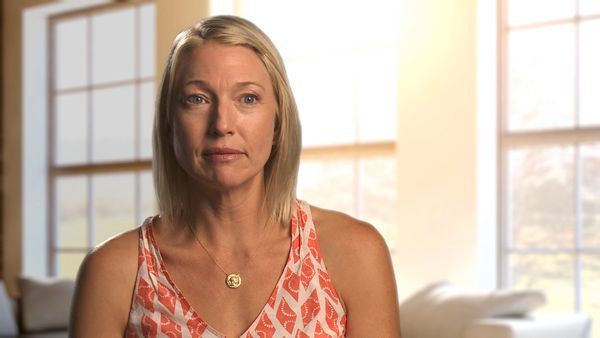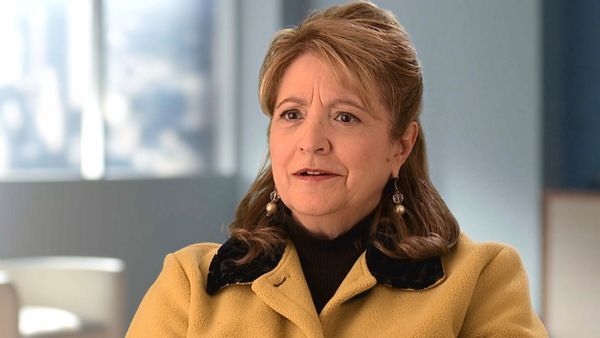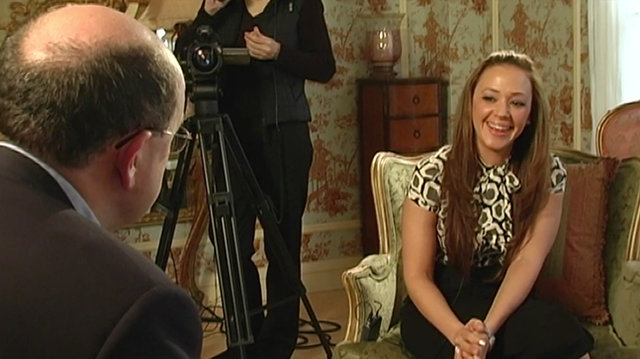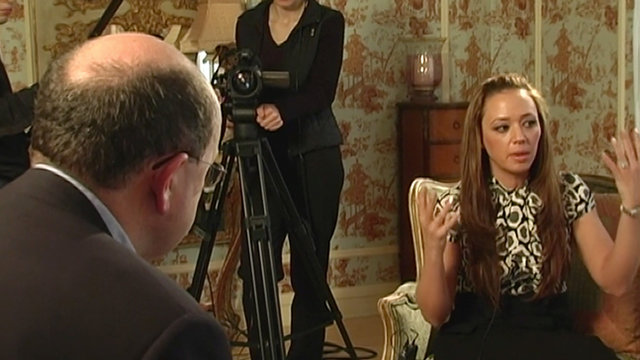Copy and paste this embed link:
Leah lost her temper and increased her volume when a professional building inspector wouldn’t agree that her home needed major repairs that someone else should pay for.
VIDEO TRANSCRIPT
I’m a professional building inspector and I’ve done maybe ten thousand different building inspections.
Bob found his new client, Leah Remini, to be unreasonable, forceful and rude, dismissing his professional opinion out of hand.
And I was called out, I believe by Leah’s mother, but by Leah wanting me to come and take a look at her house because she had a crack in it that she felt was a structural concern and needed further evaluation. So I came to the house and I was shown, by her, a—the term is called a hairline crack. It’s a very narrow, small crack. It’s in a very straight line. They’re always because of some slight movement. Earthquakes are noted for creating these, typically between two pieces of dry wall that have slightly shifted. It had not separated, it had not moved.
Hairline cracks are typical and I said, “This is a hairline crack and it just needs a minor repair and then just observe it.” She didn’t like that answer. She said, “No, that’s a structural crack,” which kind of took me aback. It was a rather forceful communication and not a pleasant one. And I said, “This is my profession. This is what I do. That is a hairline crack, that is not of a concern.” The volume went up. She got more upset.
And I realized at that moment that I’ve, in the ten thousand inspections I’ve dealt with, I probably dealt with maybe three people that I would consider to be truly—I don’t know another word other than insane. In other words, they have some sort of hidden agenda, some reason that they want to communicate something and they want somebody to agree with them. And when somebody doesn’t agree with them, and I didn’t and it wasn’t, she got upset.
And she said, “Well, no, the builder couldn’t have built this right. And this has to be fixed and I’m not going to pay for it. This is a structural concern.” And about the only thing that seemed to calm her down at all is I said, “Well, I’ve given you my professional opinion. At this point, if you need more, you’re going to have to get a Structural Engineer to physically come out here and go through this with you but he’s going to tell you the same thing that I’m telling you.” She didn’t like that at all.
Her husband came in and said, “Can I talk to you for a minute?” So she left. We went outside. He goes, “Is that a concern?” I said, “No.” He goes, “I know it’s not. She’s just—that’s the way she is.”
Leah treated my professional communication as though it had absolutely no value whatsoever because it didn’t agree with a preconceived notion that she had, that this structural problem in her house, that wasn’t one, needed fixing immediately by somebody and that somebody else was going to pay for it, that basically I had no value to her whatsoever.









